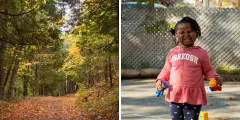How to help children cope with stress: Simple ways families and educators can support mental health
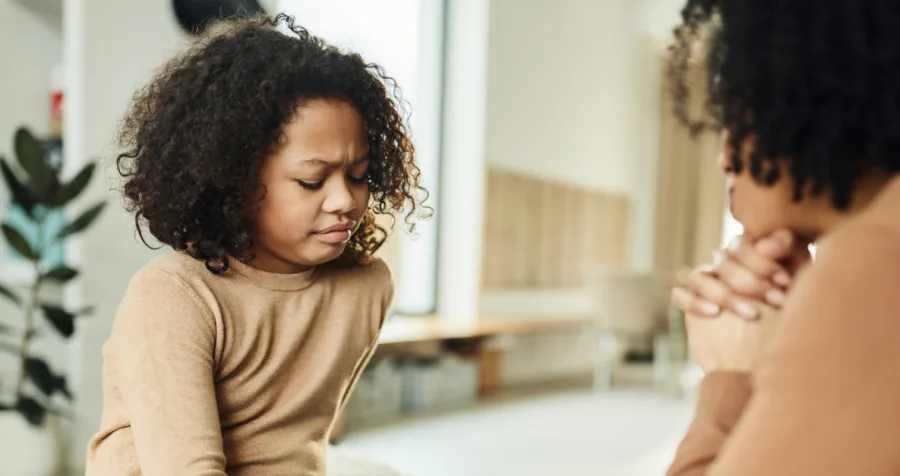
All children feel stress sometimes, whether they’re starting something new, missing someone they care about, or just having a hard day. These feelings are normal and part of growing up. The good news is that families and caring adults can support emotional well-being in many ways.
At the YMCA, educators use everyday tools to support children and show them how to cope with stress. One special tool is Mindful Moments — a calming practice that helps children take a breath, slow down, and reset their minds and bodies.
Here are five ways families and YMCA educators work together to support children’s mental health and help them feel safe, calm, and confident.
1. Creating calm and comfort through routine
Children feel more at ease when they know what to expect. Simple routines like eating breakfast at the same time or reading before bed can help them feel safe.
YMCA Child Care programs and routines are built into each day to support emotional well-being. In preschool, children follow a schedule that includes snack time, lunchtime, outdoor activities, and time with familiar peers and caring educators.
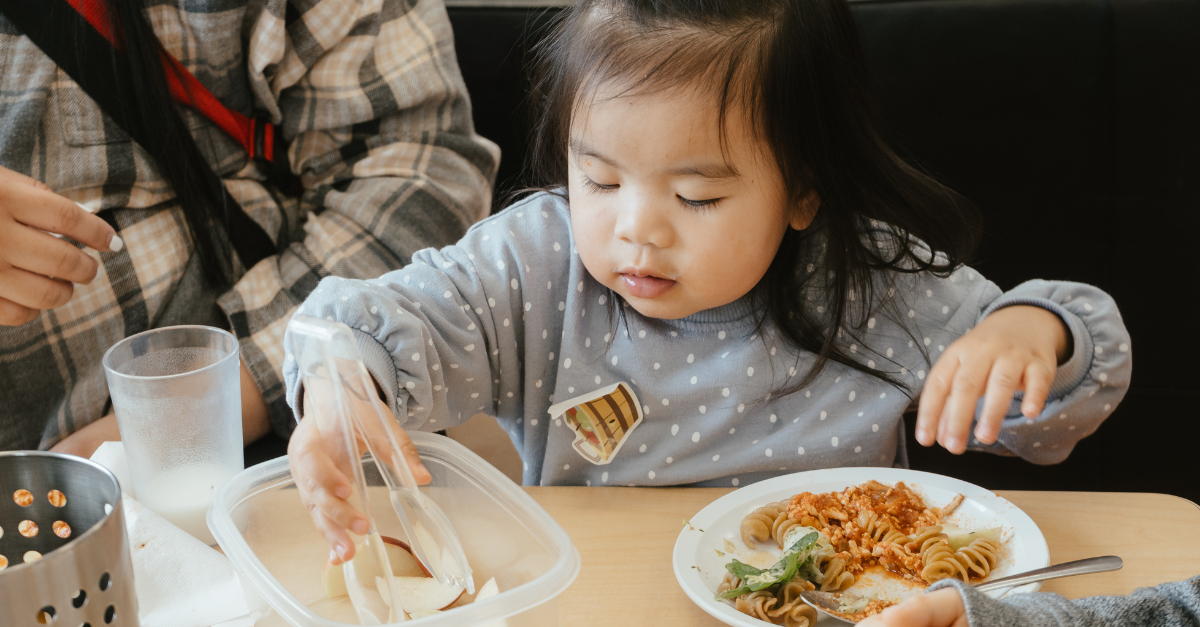 In our before and after school programs, children see the same friendly faces each day, enjoy scheduled snack times, spend time outside, and participate in group activities or projects. These daily routines give children a sense of security and help them start and end their school day feeling calm and connected.
In our before and after school programs, children see the same friendly faces each day, enjoy scheduled snack times, spend time outside, and participate in group activities or projects. These daily routines give children a sense of security and help them start and end their school day feeling calm and connected.
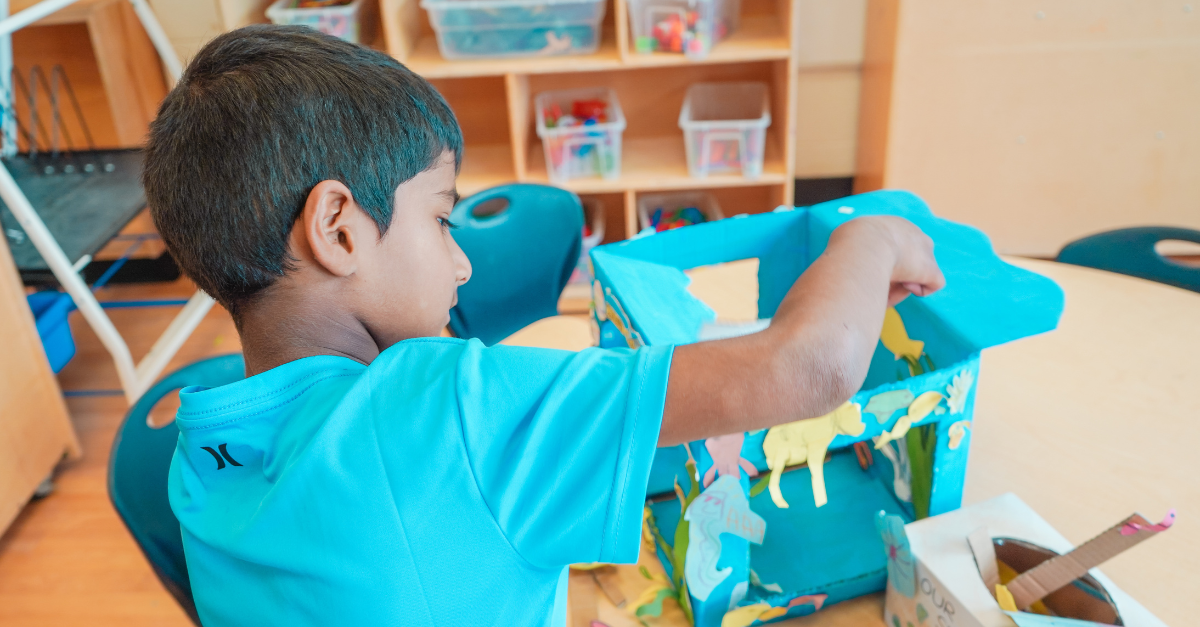
At-home example: Seven-year-old Jericho felt nervous every morning before school. His family made a morning checklist with drawings of each step, including getting dressed, packing his lunch, and brushing his teeth. It helped him feel ready and calm before heading out the door.
2. Helping children talk about feelings
Letting children talk with you about how they feel helps build trust. At the YMCA, educators talk with children during group times and quiet moments, encouraging them to share in ways that feel comfortable.
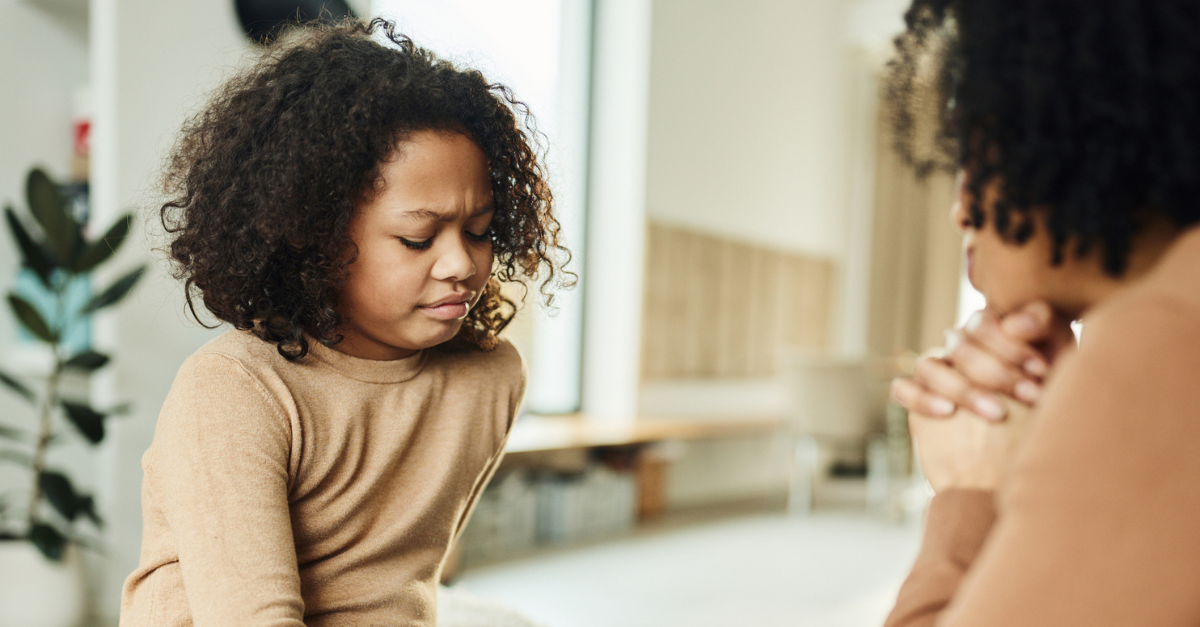 At-home example: Four-year-old Henrietta felt grief for the first time when she moved from preschool to kindergarten. She missed her old classmates and the educators she trusted for over three years. Henrietta’s parents listened when she was ready to share. They talked about how important her educators had been and how she could hold those memories in her heart while making space for new teachers and friends. Afterwards, Henrietta understood that feeling sad and unsure during big changes is normal.
At-home example: Four-year-old Henrietta felt grief for the first time when she moved from preschool to kindergarten. She missed her old classmates and the educators she trusted for over three years. Henrietta’s parents listened when she was ready to share. They talked about how important her educators had been and how she could hold those memories in her heart while making space for new teachers and friends. Afterwards, Henrietta understood that feeling sad and unsure during big changes is normal.
3. Using creative play and Mindful Moments to feel calm
Activities like drawing, painting, dancing, and building help children express feelings in fun, healthy ways. At YMCA Before and After School programs, educators lead Mindful Moments , where children pause to breathe deeply, stretch, or think about something peaceful. This helps them slow down and refocus.
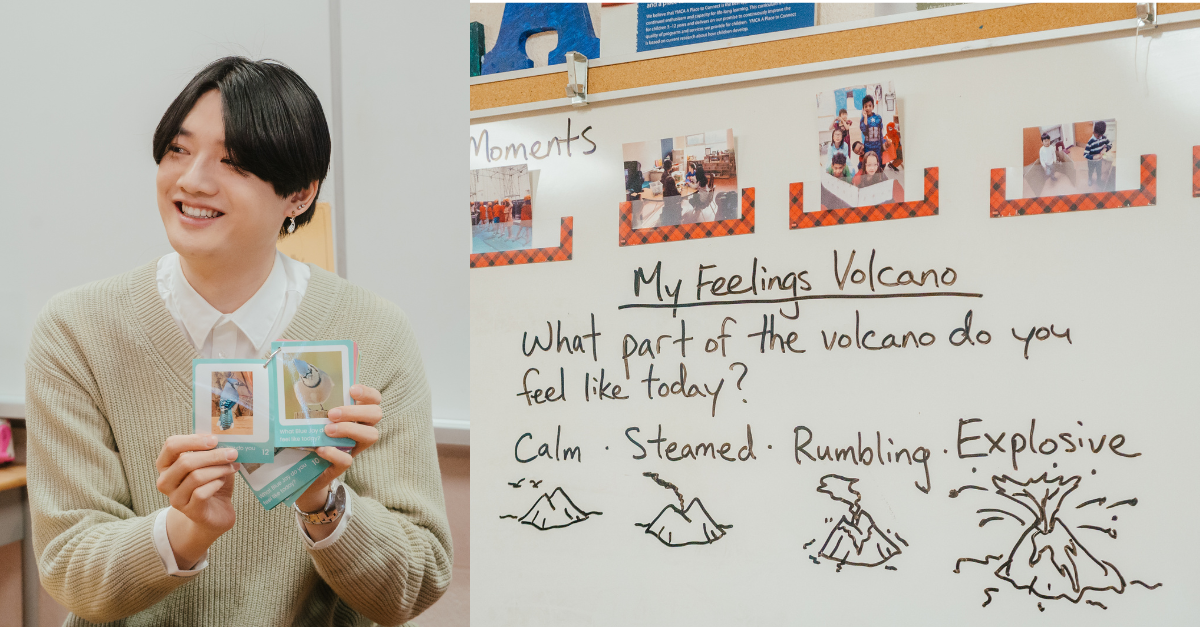 Sometimes big emotions are hard to put into words, but through play, children can show what’s on their minds and start to feel calmer.
Sometimes big emotions are hard to put into words, but through play, children can show what’s on their minds and start to feel calmer.
Favourite mindful moment activities include KOA’s Freeze Dance Yoga, where children dance to music and freeze in playful yoga poses, and My Feelings Volcano, where they draw a volcano and fill it with words or pictures showing different emotions. These activities help children notice their feelings and learn healthy ways to manage them.
At-home example: Try a quick Freeze Dance Yoga session with your child after school to shake off the day or create a feelings volcano together. Drawing emotions can help children talk about what they are feeling, and short movement breaks can help the whole family refocus and recharge.
4. Building friendships and a sense of belonging
Friendships are an important part of a child's social and emotional growth. Being around other children helps build skills like sharing, listening, solving problems, and showing kindness. In YMCA Before and After School programs, educators create safe and welcoming spaces where every child feels included. Group games, projects, and teamwork activities help children learn how to make and keep friends.
Research shows that having even one close friend can boost a child’s confidence, mental health, and school success. Friendships give children a strong sense of belonging, which helps them feel safe and supported.
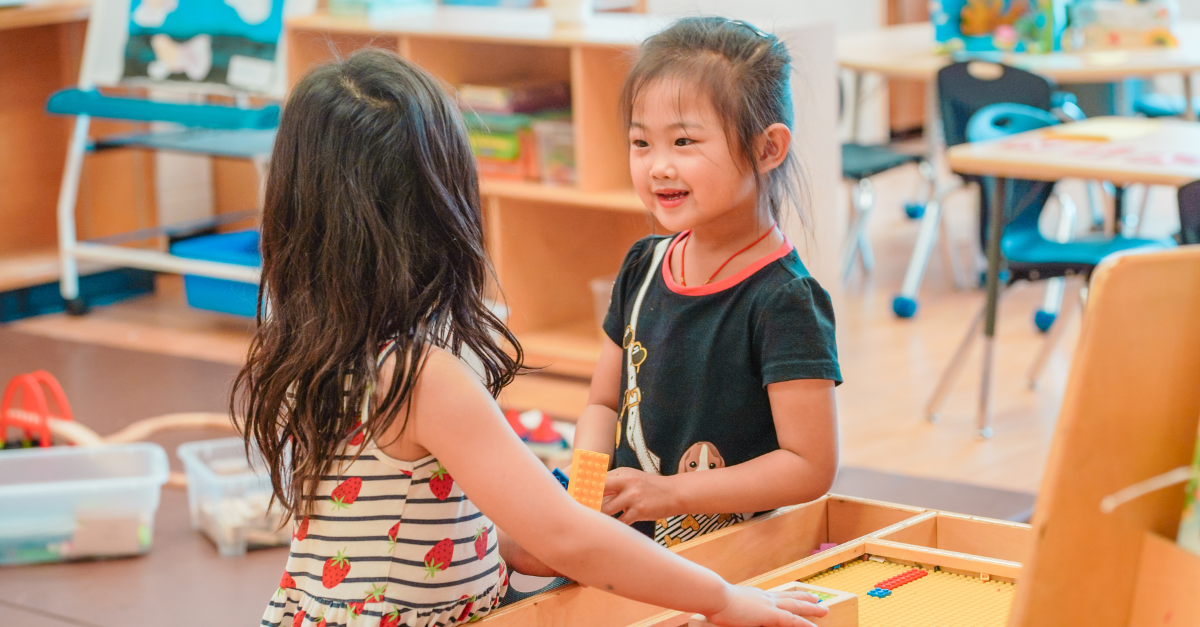
At-home example: Five-year-old Cherry was nervous about meeting new children at a community event. Her family practised a simple phrase at home: “Hi, can I play too?” When Cherry saw a group of kids building with blocks, she used her new words. Within minutes, she was laughing and helping make the tallest tower of the day. Practising small social skills at home, like smiling, offering a toy, or asking to join a game, can help children feel ready to make new friends.
5. Teaching and modelling self-regulation
YMCA educators are trained to understand and practise self-regulation. That means calming their own emotions and showing children how to do the same. Educators model healthy strategies like taking a slow breath, speaking gently, and offering choices when challenges come up. By seeing this every day, children learn that it’s okay to pause, breathe, and make thoughtful decisions.
Self-regulation is an important skill that helps children handle stress, solve problems, and build stronger friendships.
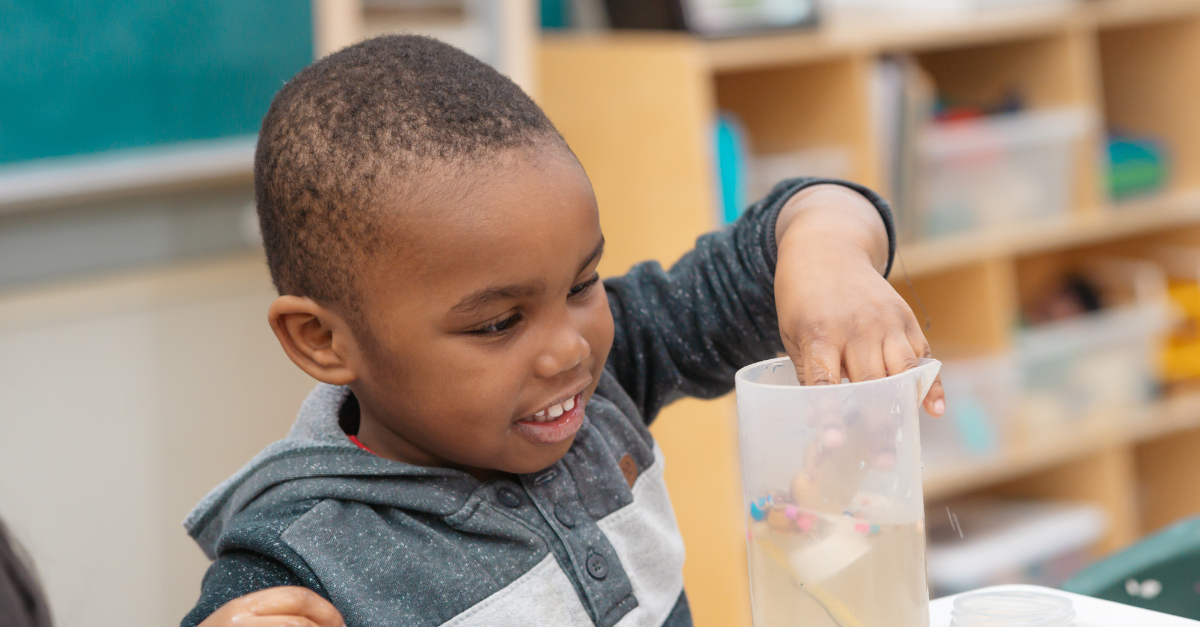
At-home example: During a weekend visit to the local library playroom, five-year-old Mathusan burst into tears when he saw another child playing with the toy kitchen he was excited to use. His father stayed calm, took a slow breath, and gently suggested finding something else to do while they waited. They went to a craft table where Mathusan made a colourful paper pizza, and his tears stopped and smiles started. When the kitchen was free, Mathusan was too busy having fun to notice.
Helping children pause and find new choices teaches them that big feelings are okay and that calm moments can lead to even better adventures.
Final thought: Helping children grow emotionally strong
Learning how to help children cope with stress is a team effort between families, educators, and communities. At the YMCA, children have time and space to explore feelings, practise mindfulness, and build lifelong skills for handling stress and change. Whether it’s through quiet breathing, caring conversations, or steady routines, these moments matter. They help children feel safe, supported, and ready for what’s next.




